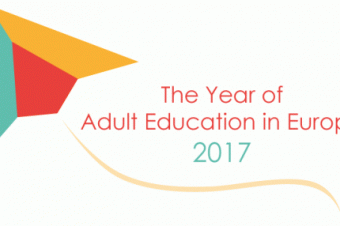
Article from Klasbak’s Website (Belgium) – Look back on distance learning
See also first article on EPEA-Website https://www.epea.org/operation-distance-learning-in-the-prisons-of-turnhout-merksplas-and-wortel-northeast-of-flanders/
Operation distance learning in three Kempen prisons; a look back
Covid-19 caused us to go into lockdown en masse the last few months. Also, in our prisons measures were taken in the fight against the virus. For example, there was no longer any possibility for group activities and the educational opportunities came to a standstill. Outside the walls this was compensated by online lessons via Zoom, Skype and so on. But in our prisons this was not an option. Under the influence of the corona crisis, however, steps were taken and, for example, the video visit (Webex) was introduced. CVO EduKempen and the education coordinators of VOCVO (the Flemish Support Centre for Adult Education) who are responsible for the provision of education, decided not to remain stuck and started a system of distance education. Without digital tools but with printed material, weekly pick-up and drop-off moments at the prisons’ doors and the efforts of many people involved, both inside and outside walls. In the end, 11 official partial certificates could be granted.
Lessons with a different outfit
In the Kempen prisons of Merksplas, Turnhout and Wortel one can rely on a part of the curriculum of CVO EduKempen during the school year. In this way prisoners can obtain the same (partial) certificates as their fellow students outside the walls. During the last period of this school year the modules “Dutch on the prison floor” in the prison of Turnhout, Spanish (RG 1.1.B) and Introduction to accounting in the prison of Merksplas and Dutch Second Language (RG 1.2.) and French (RG 1.1.B) in the prison of Wortel received an alternative version because the teachers had no access to the prison after the Easter holidays. The inmates who had taken lessons in the previous period were encouraged to register for the follow-up. 56 people applied. They received their lessons and assignments on paper in an envelope and could then get to work. Every week at the prison gates the envelopes containing the assignments and exercises were exchanged for those with the new and corrected ones.
Not for everyone
But it is not easy to handle learning on your own and only in your cell. Not everyone succeeds with this formula. Slightly less than half (26) of the students were regular participants. For them this was already a positive step towards reintegration. Not only the use of the new course material without a teacher was a challenge, but also the logistics of getting the envelopes with the teaching material from the school to the inmates was a bit of a hassle in the beginning. Eventually, the security staff also adopted this new way of working and took care of the correct handling of the material in each pavilion and at the gate for the exchange.
A competence-based evaluation
Even though most parties in this story eventually found their routine, it remains a time-consuming and complicated way of working with gaps. For example, it was not possible for the study of Modern Languages to offer the skills of ‘speaking’ and ‘listening’ due to a lack of adapted didactic material (e.g. no CD player on cell) and the lack of internet access for digital alternatives. Obtaining a full partial certificate was therefore not an option for students of the language modules in detention. A regrettable matter. Especially because the CVO, with a view to reintegration, is committed to a competence-based evaluation in which all competences (knowledge, skills and attitudes) are offered and evaluated. For example, in the work environment: reading a job vacancy, writing a CV, a motivation letter …
What have we learned?
What we managed in the Kempen shows us is that when the various parties involved show commitment and work together, anything is possible. The schoolboard and staff, teachers, education coordinators and security staff, everyone made extra efforts and adapted to be able to provide the inmates with education during the lockdown. This experience itself has also been a learning process in which expertise has been built up around distance learning in prison. But the need for digitization in prison, among other things for the educational opportunities, was once again underlined in bold.
Thanks to Ana Ferrando, teacher at CVO EduKempen and member of Klasbak for this contribution.
Original Flemish Version:
https://www.klasbak.net/bakberichten/operatie-afstandsonderwijs-in-drie-kempense-gevangenissen-een-terugblik





